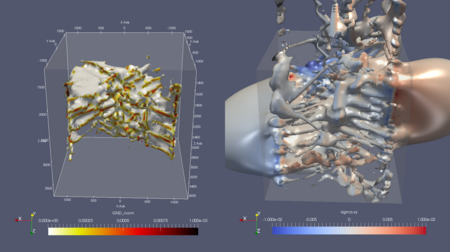
Dislocations are particularly important defects in MSE as they are responsible for plastic deformation in metals. Controlling the evolution of dislocations allows tailoring material behaviors on multiple length scales. This PP is based on the ERC Starting Grant project “MuDiLingo – A Multiscale Dislocation Language for Data-Driven Materials Science”. Here, formal ontologies shall be designed together with TA-OMS: Dislocations are/can be treated as one-dimensional mathematical lines; they exist as defects in a crystal structure. “Local rules” are responsible for a specific type of topology change of such dislocation networks. Together with boundary conditions and additional governing equations that define physical relationships this use-case develops an idealized conceptualization for which a formal ontology as an explicit specification will be created. The ontology shall be extended towards idealized representations of other defects such as, e.g., grain boundaries or point defects.
| Acronym: | MuDiLingo |
| Website: | https://cordis.europa.eu/project/id/759419 |
| Contact: | Prof. Dr. Stefan Sandfeld, Forschungszentrum Jülich |
| DFG Classification: | 406-04 Materials Science |
| Material/ Methodology: | single and polycrystalline materials including superalloys, HEAs / Molekulardynamik (MD), Discrete Dislocation Dynamics (DDD), TEM |
| Engagement : | a group of 6 PhD students and PostDocs |
NFDI-MatWerk
Funded by the Deutsche Forschungsgemeinschaft (DFG, German Research Foundation) under the National Research Data Infrastructure – NFDI 38/1 – project number 460247524.
NFDI-MatWerk
Funded by the Deutsche Forschungsgemeinschaft (DFG, German Research Foundation) under the National Research Data Infrastructure – NFDI 38/1 – project number 460247524.
Subscribe to our newsletter for regular updates about materials science topics!
After subscribing, you will receive an email from us with a confirmation
link.
Only after clicking this link your registration is completed.